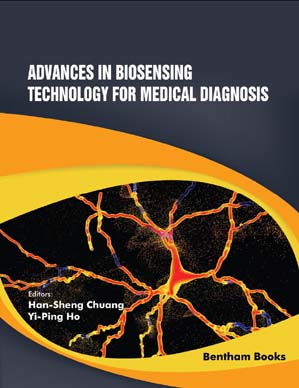Abstract
Semiconductor nanowire field-effect transistors (FETs) have attracted great interest as biosensors for point-of-care testing (POCT) because they allow label-free, real-time, ultrasensitive detection using devices that are compact, low power, and easily integrable with on-chip electronic systems. In the past twenty years, these devices have seen significant breakthroughs in various aspects of device development, such as design, fabrication, and surface functionalization, as well as in diagnostic applications, having demonstrated femtomolar detection of DNA, RNA, proteins, and small molecules. In this chapter, we highlight notable advancements in nanowire-based FET biosensors in the past decade, focusing, in particular, on biomarker detection using silicon, indium oxide and zinc oxide nanowire FET devices. Recent developments include new CMOS-compatible fabrication techniques, unconventional device configurations and detection schemes, coatings to enhance sensing stability, novel bioreceptor elements and surface modification schemes for sensitivity enhancement, as well as sample processing and portable readout systems. Furthermore, we also include studies that have used nanowire FETs in concert with pattern recognition methods for disease diagnosis using exhaled breath. The growing body of research indicates that practical solutions to long-standing issues are at hand, bringing nanowire-FET biosensors ever closer to adoption in real-world POCT applications.
Keywords: Biosensor, Biomarker, Diagnosis, Field effect, Indium oxide, Nanowire, Nanomaterial, Point of care, Sensor, Silicon, Semiconductor, Transistor, Zinc oxide.


















